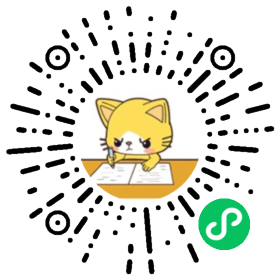相关试题
【单选题】
哲学的生命力从根本上说在于___
A. 适应时代的需要
B. 满足统治阶级的需要
C. 反映劳苦大众的需要
D. 适应思想创新的需要
【单选题】
爱因斯坦说:“哲学可以被认为是全部科学之母”。这说明___
A. 哲学是自然科学的基础
B. 哲学是对自然科学理论的概括和总结
C. 哲学研究的对象是世界发展的一般规律
D. 哲学对自然科学的研究有指导作用
【单选题】
马克思主义哲学是整个马克思主义理论的___
A. 主要内容
B. 理论基础
C. 核心部分
D. 实质或灵魂
【单选题】
学习马克思主义哲学的根本目的在于___
A. 提高知识理论水平
B. 培养和确立科学的世界观
C. 掌握正确的工作方法
D. 全面提高人的素质
【单选题】
马克思主义哲学和各门具体科学之间的关系是___
A. 理性认识和感性认识之间的关系
B. 普遍和特殊、共性和个性之间的关系
C. 本质和现象、必然和偶然之间的关系
D. 无限和有限、绝对和相对之间的关系
【单选题】
马克思主义辩证法与黑格尔辩证法的本质区别是___
A. 前者是完整的理论形态,后者是不完整的理论形态
B. 前者承认运动,后者不承认运动
C. 前者揭示了意识的本质,后者未能揭示意识的本质
D. 前者以唯物主义为基础,后者以唯心主义为基础
【单选题】
从研究对象上看,马克思主义哲学是___
A. 包罗万象的“科学之科学”
B. 关于客观世界一切规律的科学
C. 关于自然、社会和思维发展普遍规律的科学
D. 关于人和人生问题的学说
【单选题】
马克思主义哲学同具体科学的关系是___
A. 共性和个性的关系
B. 整体和部分的关系
C. 内容和形式的关系
D. 本质和现象的关系
【单选题】
马克思主义哲学区别于一切旧哲学的最主要最显著的特点是___
A. 阶级性
B. 科学性
C. 革命性
D. 实践性
【单选题】
马克思主义哲学是___
A. 哲学发展的最高峰或终极真理
B. 进一步研究的出发点和供这种研究使用的方法
C. 提供解决一切问题的现成答案
D. 不可抗拒、永恒不变的原则
【单选题】
学习马克思主义哲学的根本目的在于___
A. 增长科学知识
B. 增强语言能力
C. 培养和确立科学的世界观
D. 提高个人的心理素质
【单选题】
学习马克思主义哲学的根本方法是___
A. 反复阅读教材,背熟每一个要点
B. 亲自参加实践
C. 理论联系实际
D. 虚心向人求教
【单选题】
马克思主义哲学创立之后,开始出现了 ___
A. 唯物论与唯心论的对立
B. 可知论与不可知论的对立
C. 辩证法与形而上学的对立
D. 唯物史观与唯心史观的对立
【单选题】
现代科技革命的发展对马克思主义哲学的影响是___
A. 使马克思主义哲学越来越不适应现时代
B. 证明马克思主义哲学是绝对真理的体系
C. 深化和拓展了马克思主义哲学世界观
D. 对马克思主义哲学基本原理作出了否定
【单选题】
从思想倾向上来看,现代西方哲学可以分为两股思潮。它们是___
A. 主观唯心主义和客观唯心主义
B. 人本主义和科学主义
C. 唯意志主义和存在主义
D. 贝克莱主义和休谟主义
【单选题】
哲学上的两大基本派别是指 ___
A. 辩正法与形而上学
B. 唯物主义与唯心主义
C. 可知论与不可知论
D. 一元论与二元论
【单选题】
划分唯物主义和唯心主义的标准在于是否承认___
A. 世界是普遍联系的
B. 世界是运动、变化、发展的
C. 世界是物质的
D. 世界是统一的
【单选题】
哲学上的一元论就是承认___
A. 世界是物质的
B. 世界在本质上是精神的
C. 世界是发展的
D. 世界是统一的
【单选题】
唯物主义一元论同唯心主义的一元论对立的根本点在于___
A. 世界发展动力问题
B. 意识本质问题
C. 世界本原问题
D. 实践本质问题
【单选题】
哲学上的二元论的错误在于否认___
A. 世界的统一性
B. 世界的运动变化
C. 物质和运动的不可分割性
D. 时间和空间的不可分割性
【单选题】
否认思维和存在有同一性的哲学是___
A. 唯心主义
B. 诡辩论
C. 不可知论
D. 二元论
【单选题】
“世界统一于存在”的观点___
A. 坚持了彻底的唯物主义一元论
B. 是地地道道的唯心论
C. 是掩盖哲学上两大基本派别对立的提法
D. 是被自然科学发展证明了的科学命题
【单选题】
物质世界是多样性的统一,统一的基础是 ___
【单选题】
肯定思维和存在有同一性,这是___
A. 辩证法的观点
B. 形而上学的观点
C. 唯心主义的观点
D. 可知论的观点
【单选题】
唯物主义的三个历史发展阶段是___
A. 朴素唯物主义、形而上学唯物主义、辩证唯物主义和历史唯物主义
B. 中国哲学、印度哲学、古希腊罗马哲学
C. 17世纪英国唯物主义、18世纪法国唯物主义、19世纪德国费尔巴哈唯物主义
D. 马克思主义阶段、列宁主义阶段、毛泽东思想阶段
【单选题】
把物质说成是一种或几种可直接感知的实物是___
A. 近代形而上学唯物主义物质观
B. 辩证唯物主义物质观
C. 庸俗唯物主义物质观
D. 古代朴素唯物主义的物质观
【单选题】
火是万物本原的观点是属于___
A. 唯心主义的观点
B. 机械唯物主义的观点
C. 自发的或朴素的唯物主义的观点
D. 主观唯心主义的观点
【单选题】
《国语·郑语》写道:“先主以土与金木水火杂,以成百物”;朱熹提出:“未有天地之先,毕竟是先有理”。这是___
A. 主观唯心主义和客观唯心主义两种不同观点
B. 古代朴素唯物主义和主观唯心主义两种不同观点
C. 古代唯物主义之中两种不同派别的观点
D. 古代朴素唯物主义与客观唯心主义两种不同观点
【单选题】
提出真正科学的唯物主义物质观的是___
A. 古代朴素的唯物主义
B. 辩证唯物主义
C. 德国古典哲学中费尔巴哈的唯物主义
D. 近代形而上学唯物主义
【单选题】
唯心主义的两种基本形式是___
A. 古典唯心主义和现代唯心主义
B. 形而上学唯心主义和辩证法的唯心主义
C. 教条主义和经验主义
D. 主观唯心主义和客观唯心主义
【单选题】
主观唯心主义和客观唯心主义的区别是___
A. 前者强调主观能动性,后者强调客观规律性
B. 前者认为人的主观精神决定世界,后者认为世界是某种客观精神创造的
C. 前者认为人是第一性的,后者认为自然界是第一性的
D. 前者是完全错误的,后者有一定的合理性
【单选题】
划分唯物主义和唯心主义的唯一标准,是如何回答___
A. 世界的运动和发展问题
B. 世界的统一性问题
C. 思维和存在何者为第一性的问题
D. 世界的可知性问题
【单选题】
主观唯心主义者主张___
A. 认识来源于绝对观念
B. 人在神的启示下认识世界
C. 世界是可以认识的
D. 世界万物是"感觉的复合
【单选题】
“人为自然界立法”是___
A. 不可知论观点
B. 二元论观点
C. 主观唯心主义观点
D. 客观唯心主义观点
【单选题】
下列观点属于客观唯心主义的是___
A. “生死有命,富贵在天”
B. “万物皆备于我”
C. “存在就是被感知”
D. “心外无物”
【单选题】
主张意志自由是绝对的,认为意志支配一切的观点是___
A. 宿命论
B. 唯意志论
C. 唯物论
D. 历史唯物主义、
【单选题】
“理在事先”这种认识论的观点是___
A. 不可知论
B. 可知论;
C. 客观唯心主义
D. 主观唯心主义
【单选题】
现代西方哲学,不论是人文主义,还是科学主义,其实质都是___
A. 唯物主义
B. 唯心主义
C. 辩证法
D. 形而上学
【单选题】
物质的唯一特性是___
A. 运动的绝对性
B. 客观实在性
C. 可知性
D. 矛盾性
【单选题】
世界的统一性在于 ___
A. 它的矛盾性
B. 它的可知性
C. 它的物质性
D. 它的存在性
推荐试题
【单选题】
国家保障自然资源的( ),保护珍贵的动物和植物。___
A. 最大利用
B. 绝对保护
C. 合理利用
D. 有限使用
【单选题】
农村集体经济组织实行( )为基础、统分结合的双层经营体制。___
A. 集体分配
B. 村民自治
C. 村委组织经营
D. 家庭承包经营
【单选题】
国家在社会主义初级阶段的基本经济制度是( )。___
A. 坚持以公有制为主体,多种所有制经济共同发展
B. 坚持以按劳分配为主体,多种分配方式并的分配制度
C. 坚持以全民所有制为主体,集体和其他经济成分共同发展
D. 坚持公有制的主体地位
【单选题】
我国社会主义经济制度的基础是( )。___
A. 全民公有制
B. 集体所有制经济
C. 非公有制经济
D. 生产资料的社会主义公有制
【单选题】
在我国矿藏、水流的所有权属于( )。___
A. 社会
B. 集体
C. 国家和集体
D. 国家
【单选题】
根据宪法和法律的规定,以下( )自然资源能够属于国家和集体所有。___
A. 野生动植物、矿藏、水流
B. 水流、草原、滩涂
C. 森林、草原、荒地
D. 野生动植物、草原、水流
【单选题】
国家在社会主义初级阶段,坚持( )的分配制度。___
A. 按劳分配
B. 按需分配
C. 按劳分配为主体,多种分配方式并存
D. 按资分配
【单选题】
宪法以( )的形式确认了中国各族人民奋斗的成果,规定了国家的根本制度和根本任务,是国家的根本法,具有最高的法律效力。___
【单选题】
下列不是我国宪法的基本原则的选项是( )。___
A. 一切权力属于人民原则
B. 尊重和保障人权原则
C. 三权分立原则
D. 民主集中制原则
【单选题】
国家的立法权属于( )。___
A. 人民
B. 国务院
C. 党
D. 国家权力机关
【单选题】
我国《宪法》明确规定,中华人民共和国的国家机构实行( )原则。___
A. 为人民服务
B. 民主集中制
C. 社会主义法制
D. 精简
【单选题】
国家行政机关、审判机关、检察机关都由( )产生,对它负责,受它监督。___
A. 民主选举
B. 人民代表大会
C. 人大常委会
D. 党内选举
【单选题】
下列选项中不是宪法规定的内容是( )。___
A. 国家根本制度
B. 国家根本任务
C. 公民基本权利
D. 公民具体义务
【单选题】
下列关于宪法特征的描述错误的是( )。___
A. 普通法律不得与宪法相抵触
B. 宪法是一切组织、机构和个人的根本活动准则
C. 宪法具有最高的法律效力
D. 在我国,宪法的修改必须是由全国人民代表大会常务委员会或者三分之二以上的全国人民代表大会代表提议,始得启动修宪程序
【单选题】
根据我国宪法的规定,城镇中的手工业、工业、建筑业、运输业、商业、服务业等行业的各种形式的合作经济,都是社会主义劳动群众( )经济。___
A. 全民公有制
B. 集体所有制
C. 非公有制
D. 生产资料所有制
【单选题】
关于宪法在立法中的作用,下列哪一说法是不正确的?___
A. 宪法确立了我国法律体系的基本目标
B. 宪法确立了立法的统一基础
C. 宪法规定了具体立法体制和立法规划
D. 宪法规定了解决法律体系内部冲突的基本机制
【单选题】
宪法效力是指宪法作为法律规范所具有的约束力与强制性。关于我国宪法效力,下列哪一选项是不正确的?___
A. 侨居国外的华侨受中国宪法保护
B. 宪法的效力及于中华人民共和国的所有领域
C. 宪法的最高法律效力首先源于宪法的正当性
D. 宪法对法院的审判活动没有约束力
【单选题】
国家保护城乡集体经济组织的合法的权利和利益,( )集体经济的发展。___
A. 保障
B. 监督、管理和指导
C. 保护
D. 鼓励、指导和帮助
【单选题】
各少数民族聚居的地方实行( ),设立自治机关,行使自治权。___
A. 区域自治
B. 民族自治
C. 基层群众自治
D. 特殊的经济制度
【单选题】
有权决定特别行政区设立的国家机关是( )。___
A. 全国人民代表大会
B. 全国人民代表大会常务委员会
C. 国务院
D. 国家主席
【单选题】
国家( )非公有制经济的发展,并对非公有制经济依法实行监督和管理。___
A. 保障、鼓励和支持
B. 鼓励、引导和帮助
C. 引导、支持和保障
D. 鼓励、支持和引导
【单选题】
除因国家安全或者追查刑事犯罪的需要,由公安机关或者( )依照法律规定的程序对通信进行检查外,任何组织或者个人不得以任何理由侵犯公民的通信自由和通信秘密。___
A. 监察机关
B. 司法行政机关
C. 检察机关
D. 其他执法机关
【单选题】
行使国家立法权的机关是( )。___
A. 国务院
B. 国务院办公厅
C. 全国人民代表大会和全国人民代表大会常务委员会
D. 全国人民代表大会、全国人民代表大会常务委员会和国务院
【单选题】
我国宪法的解释权属于( )。___
A. 全国人民代表大会
B. 国务院
C. 全国人民代表大会常务委员会
D. 全国人民代表大会法律委员会
【单选题】
宪法规定,( )行使撤销省、自治区、直辖市国家权力机关制定的同宪法、法律和行政法规相抵触的地方性法规和决议的职权。___
A. 全国人民代表大会
B. 全国人民代表大会常务委员会
C. 国务院
D. 最高人民检察院
【单选题】
审计机关在( )领导下,依照法律规定独立行使审计监督权,不受其他行政机关、社会团体和个人的干涉。___
A. 国务院总理
B. 全国人民代表大会常务委员会委员长
C. 国家主席
D. 全国政协主席
【单选题】
根据我国宪法的明确规定,人民法院、人民检察院和公安机关办理___,应当分工负责,互相配合,互相制约,以保证准确有效地执行法律。
A. 刑事案件
B. 民事案件
C. 经济案件
D. 行政案件
【单选题】
决定战争和和平的问题的国家机关是( )。___
A. 全国人民代表大会
B. 全国人民代表大会常务委员会
C. 国家主席
D. 国务院
【单选题】
中华人民共和国副主席缺位的时候,由( )补选。___
A. 全国人民代表大会
B. 全国人民代表大会常务委员会
C. 全国人民代表大会会议主席团
D. 全国人民代表大会专门委员会
【单选题】
中华人民共和国副主席受主席的( ),可以代行主席的部分职权。___
【单选题】
全国人民代表大会和全国人民代表大会常务委员会的组织和工作程序由( )规定。___
A. 宪法
B. 法律
C. 行政法规
D. 决定
【单选题】
全国人民代表大会代表受( )监督。___
A. 全国人民代表大会
B. 全国人民代表大会常务委员会
C. 原选举单位
D. 国务院
【单选题】
我国《宪法》明确规定,在全国人民代表大会闭会期间,各专门委员会受( )的领导。___
A. 全国人民代表大会常务委员会
B. 全国人民代表大会会议主席团
C. 中华人民共和国主席
D. 国务院
【单选题】
民族自治地方的自治机关依照国家的军事制度和当地的实际需要,经( )批准,可以组织本地方维护社会治安的公安部队。___
A. 国务院
B. 民族自治地方的人民代表大会
C. 民族自治地方的人民政府
D. 全国人民代表大会
【单选题】
自治县县长应具备什么法定条件?___
A. 是实行区域自治的民族的公民
B. 年满四十五周岁
C. 在实行区域自治的地方居住满十五年
D. 居住在本行政区域内
【单选题】
自治区的自治条例和单行条例生效的要件是___。
A. 报全国人民代表大会常务委员会备案
B. 报全国人民代表大会常务委员会批准
C. 报省人民代表大会批准
D. 报国务院备案
【单选题】
根据宪法的明确规定,全国地方各级人民政府都服从( )。___
A. 国务院
B. 国务院总理
C. 主席团
D. 专门委员会
【单选题】
根据我国宪法的相关规定,乡的区域划分由( )决定。___
A. 省、直辖市的人民政府
B. 省、直辖市的人民代表大会
C. 省、直辖市的人民代表大会常务委员会
D. 国务院
【单选题】
中央军事委员会主席对( )负责。___
A. 全国人民代表大会和全国人民代表大会常务委员会
B. 中央军事委员会
C. 国务院
D. 仅对全国人民代表大会负责
【单选题】
在我国,农村的宅基地和自留地属于谁所有?___



